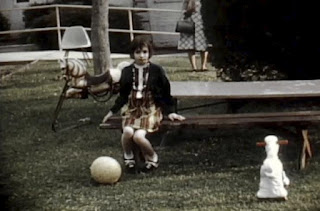Palm of Christ : Most Poisonous Plant on Earth
The stuff of nightmares usually consists of snakes, spiders, dark open water, and uncontrollable fires, to name a few. But one unlikely plant should be included in our collective fears catalog, too: the "Palm of Christ." Don't let the gentle nickname fool you; the poison in this plant makes a rattlesnake look like a kitten by comparison.
10 Incredibly Deadly Plants
A Mean Bean
Ricinus communis has a few names, including "Palm of Christ," Ricinus, castor bean, and castor oil plant. Oh, and "most poisonous plant on Earth," according to the 2007 edition of the Guinness Book of World Records. Citing its Seussian, "Where The Wild Things Are" appearance, it's an unlikely villain. But dissecting the plant reveals its small brown seeds, where the dangerous poison lives. These seeds, also known as castor beans, "are unquestionably among the most deadly seeds on earth, and it is their irresistible appearance that makes them so dangerous," Wayne Armstrong, a botany instructor at Palomar Junior College, wrote in a 1982 article in Environment Southwest magazine.
These seeds contain a protein called ricin, which is 6,000 times more poisonous than cyanide and 12,000 times more poisonous than rattlesnake venom. Ingesting these seeds is a very bad, probably fatal decision. According to Gizmodo, swallowing a lethal dose of seeds — probably four to eight — will lead to burning sensations in your mouth and throat and extreme abdominal pain. In 36 hours, you'll experience bloody diarrhea, and you could be dead within three to five days if the poisoning is left untreated.
Though, we're not sure what the treatment could be seeing as there is no ricin vaccine and the stuff damages literally all of your organs. As the CDC frankly states, "Because no antidote exists for ricin, the most important factor is avoiding ricin exposure in the first place." A dose of purified ricin powder the size of a few grains of table salt could kill an adult person. Seriously. In 1979, there was a poisoning case in London where a Bulgarian diplomat was pricked by the tip of an umbrella containing ricin and died.
Ricin's Redemption
Despite the horribly deadly power of the "Palm of Christ," these plants are shockingly common. You could even grow one in your house — and many people do. The plants are kind of pretty, after all, and they're useful too. About a million tons of castor oil seeds are grown worldwide and used for many products and materials: paint, varnish, lubricant for jet engines, nylon, transparent soap, contraceptives, and as a potential alternative energy source for fuel. Scientists are even studying the compounds in the seeds to see if it may be helpful in cancer and AIDS research. Deadly and life-saving? Who knows. The ancient Egyptians, Romans, and Greeks all used the stuff for medicinal purposes too.
The reason this nightmare plant can be used the world over in a variety of cases is that it can be detoxified. A heat treatment can eliminate its dangerous properties. Phew, close one.
Source : Curiosity
- Get link
- X
- Other Apps


Comments
Post a Comment